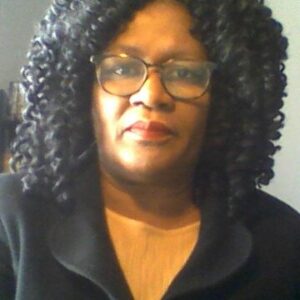Dr. Khorshid Mohammad is a Syrian immigrant and a dedicated neonatologist who has made remarkable contributions to saving the lives of children at the Alberta Health Services, Calgary Zone. He is a Pediatrics professor at the Cumming School of Medicine, University of Calgary, and Medical Site lead of Neonatology at Alberta Children’s Hospital.
The physician’s inspiring story is a testament to the impact immigrants have on the Canadian healthcare system.
Dr. Mohammad grew up in northeastern Syria and graduated in 2006 from the University of Damascus and Arab League with a master’s and specialty degree in Pediatrics. He moved to Canada in 2008 and revolutionized the field by founding the country’s first newborn neurological intensive care program at Alberta Children’s Hospital in Calgary.
Within a few short years, Dr. Mohammad built on his credentials. He completed neonatal fellowship training at the University of Calgary in 2010, Neonatal Neurology training at the University of British Columbia, and Targeted Neonatal Echocardiography at the Universities of British Columbia and Calgary in 2013. In 2014, Dr. Mohammad established the Neonatal Neuro-Critical Care program in Calgary in collaboration with Pediatric Neurology.
But his work’s impact goes beyond Calgary. His inventions have helped people worldwide and saved the lives of newborns who need special care.
His highly specialized field makes him an active participant in medical research. Dr. Mohammad’s dedication to his research projects is why he used his money to kick-start many. He chooses not to patent his inventions because he wants everyone to use or reproduce them.
Extensive impact
Because of this generous approach, Dr. Mohammad’s technologies have helped thousands of patients, including his and other doctors across Canada and worldwide.
But that is not all. Dr. Mohammad cares for patients at Alberta Health Services, shares his knowledge with aspiring medical professionals through lectures, workshops, and publications, and mentors medical students at the University of Calgary.
The newborn neurological intensive care program, one of two in Canada, offers round-the-clock monitoring for infants at risk of seizures. Thanks to this program, doctors can quickly spot and treat seizures, giving babies the best chance of recovery.
Dr. Mohammad is a founding member of the Newborn Brain Society, chair of its educational committee, and member of its Board of Directors.
Dr. Mohammad is among the immigrants who comprise 31.5% of Calgary’s population and the over 1.9 million people working in Canada’s health care sector. According to Statistics Canada, immigrants account for one in four healthcare workers.
According to his profile on the University of Calgary website, Dr. Mohammad’s quality improvement work led to a significant reduction in mortality and brain injury in extremely premature infants and term infants suffering from asphyxia and seizures. Subsequently, he received an award for Emerging Leader in Neonatology by the Canadian Paediatric Society in 2020.
Immigrants in healthcare
A high percentage of immigrants are in health care occupations. According to Statistics Canada, immigrants make up 37 percent of physicians and 25 percent of registered nurses. Forty-two percent of nurse aids and others in related fields are immigrants, and 43 percent of pharmacists are immigrants.
Dr. Mohammad has also developed new medical technologies to help newborns with serious neurological issues. These devices let clinicians practise before performing delicate imaging procedures on patients. Some services, such as radiology, aren’t available 24 hours a day in most hospitals. So, Dr. Mohammad teaches the bedside medical staff to handle the procedures themselves, allowing babies with urgent needs to be diagnosed and treated promptly.
Yulia Foisy, a mother, commented on Dr. Mohammad’s dedication when her daughter was born at 23 weeks and had a severe brain bleed, which made her spend five months in the Neonatal Intensive Care unit.
“Dr. Mohammad gave me hope when no one else did. He was always there to remind me not to give up,” Foisy said. “He just kind of adopted me. I can’t remember much of that time. I just remember him because he treated me like I was a person.”
But for the doctor, it was all in a day’s work. “My main responsibilities are my patients and their families, and related to that, my students, colleagues and nurses. I enjoy taking care of each individual patient as much as I enjoy the bigger picture and the impact of my research,” said Dr. Mohammad.
“The sustainability and effectiveness of the Canadian health care system depends on an integrated and diverse workforce. We value the important contribution of immigrants to our health care system and welcome them to Canada,” Claire Betker, former president of the Canadian Nurses Association.
Sense of responsibility
Dr. Alixe Howlett, a neonatologist who was Dr. Mohammad’s training program director, describes him as thoughtful, caring and generous, with a strong sense of responsibility to give back to Canada.
When the COVID-19 pandemic began, and schools closed, he organized a drive to collect laptops for children in Calgary who couldn’t afford them.
There are recruitment challenges everywhere in Canada for nurses, residential care staff, and home health care staff. Immigrants can fill these gaps in the health care sector.
“The sustainability and effectiveness of the Canadian health care system depends on an integrated and diverse workforce. We value the vital contribution of immigrants to our health care system and welcome them to Canada,” Claire Betker, former president of the Canadian Nurses Association, said.
Dr. Mohammad’s dedication to saving newborns and working in medical research has impacted Canada’s healthcare system. His journey from Syria to Calgary shows the crucial contributions immigrants make, not only in specialized fields like neonatology but also in a more diverse and effective workforce in healthcare and other sectors.
Healthcare Immigration to Canada FAQ
What are the healthcare job prospects for immigrants in Canada?
Canada has a high demand for healthcare professionals, especially nurses, doctors, and medical technicians. With an aging population, job opportunities are plentiful in both urban and rural areas. Immigrants with the right qualifications and experience can find jobs through programs like Express Entry or provincial nominee programs, which prioritize healthcare occupations.
How do I immigrate to Canada as a healthcare professional?
Healthcare professionals can immigrate through programs like Express Entry, Provincial Nominee Program (PNP), or the Atlantic Immigration Pilot Program (AIPP). You will need to get your credentials assessed by a Canadian regulatory body and meet the language and job requirements for eligibility. Provinces with healthcare shortages often have tailored immigration streams for healthcare workers.
Are healthcare credentials from my country recognized in Canada?
Most healthcare credentials from foreign countries require assessment by a regulatory body in Canada. You may need to undergo additional certification, exams, or training. The process varies by profession and province. For example, nurses must be assessed by the National Nursing Assessment Service (NNAS), while doctors undergo assessment by the Medical Council of Canada.
Is healthcare experience gained abroad considered in Canada?
Yes, healthcare experience from abroad is recognized in Canada but often requires validation through professional licensing exams and credential assessments. Immigration pathways like Express Entry provide points for work experience, while employers may ask for proof of relevant experience in your field. Specialized experience in high-demand areas, such as eldercare or critical care, may offer better opportunities.
What language requirements are needed for healthcare professionals immigrating to Canada?
Healthcare professionals must meet language proficiency requirements, typically in English or French, to practice in Canada. Programs like Express Entry or PNP require language test results from IELTS (English) or TEF (French). The required scores depend on the immigration stream and job, with higher scores needed for patient-facing roles like doctors and nurses.





